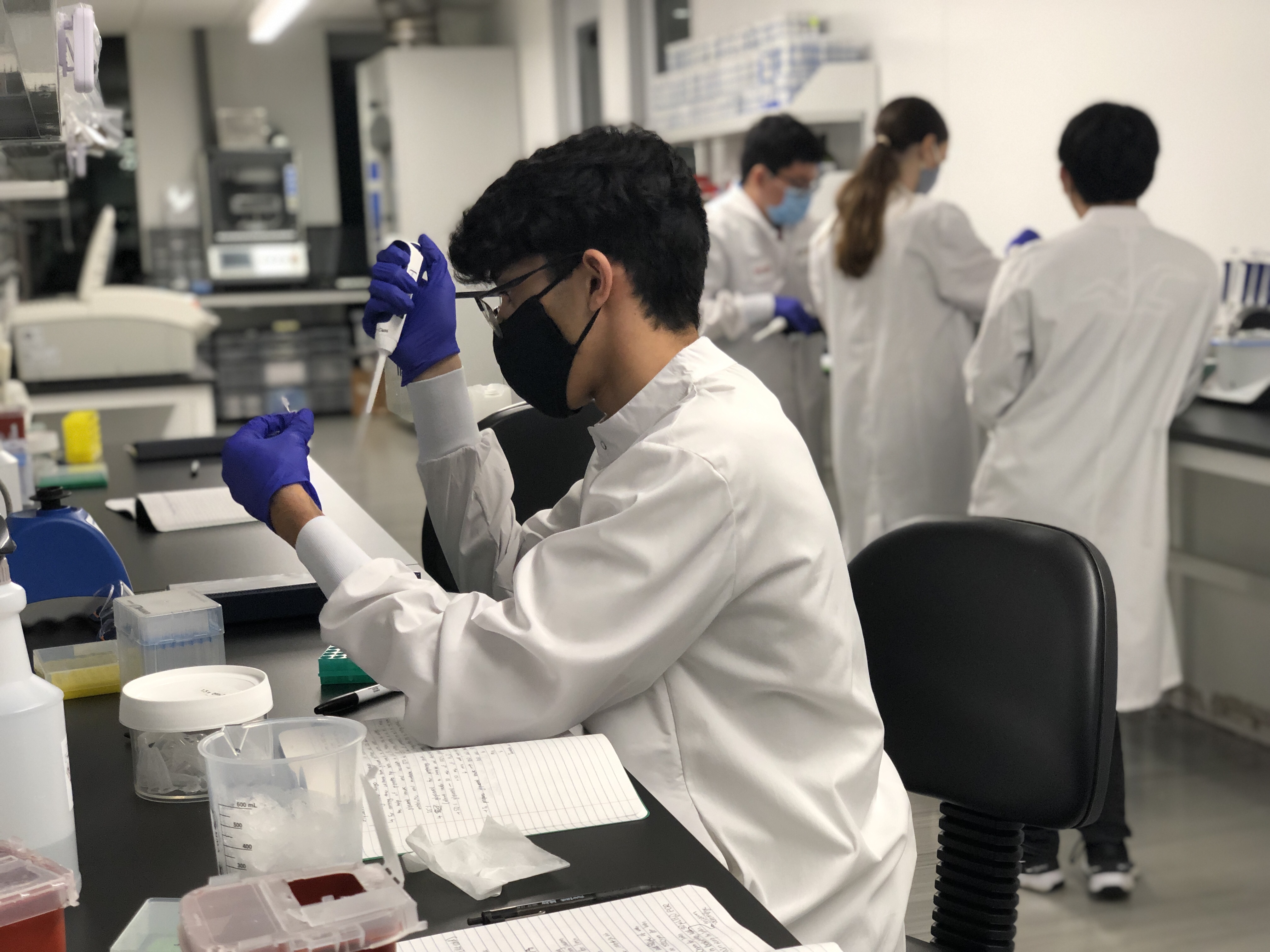
Molecular Biology Laboratory Techniques Training Course
The Schuster Laboratory, University of Manchester (a physics laboratory). A laboratory (UK: / l ə ˈ b ɒr ə t ər i /; US: / ˈ l æ b r ə t ɔːr i /; colloquially lab) is a facility that provides controlled conditions in which scientific or technological research, experiments, and measurement may be performed. Laboratories are found in a variety of settings such as schools, universities.

Biological research laboratory Stock Image G350/0685 Science Photo Library
Biological specimens in an elementary school science lab. A biological specimen (also called a biospecimen) is a biological laboratory specimen held by a biorepository for research. Such a specimen would be taken by sampling so as to be representative of any other specimen taken from the source of the specimen. When biological specimens are.
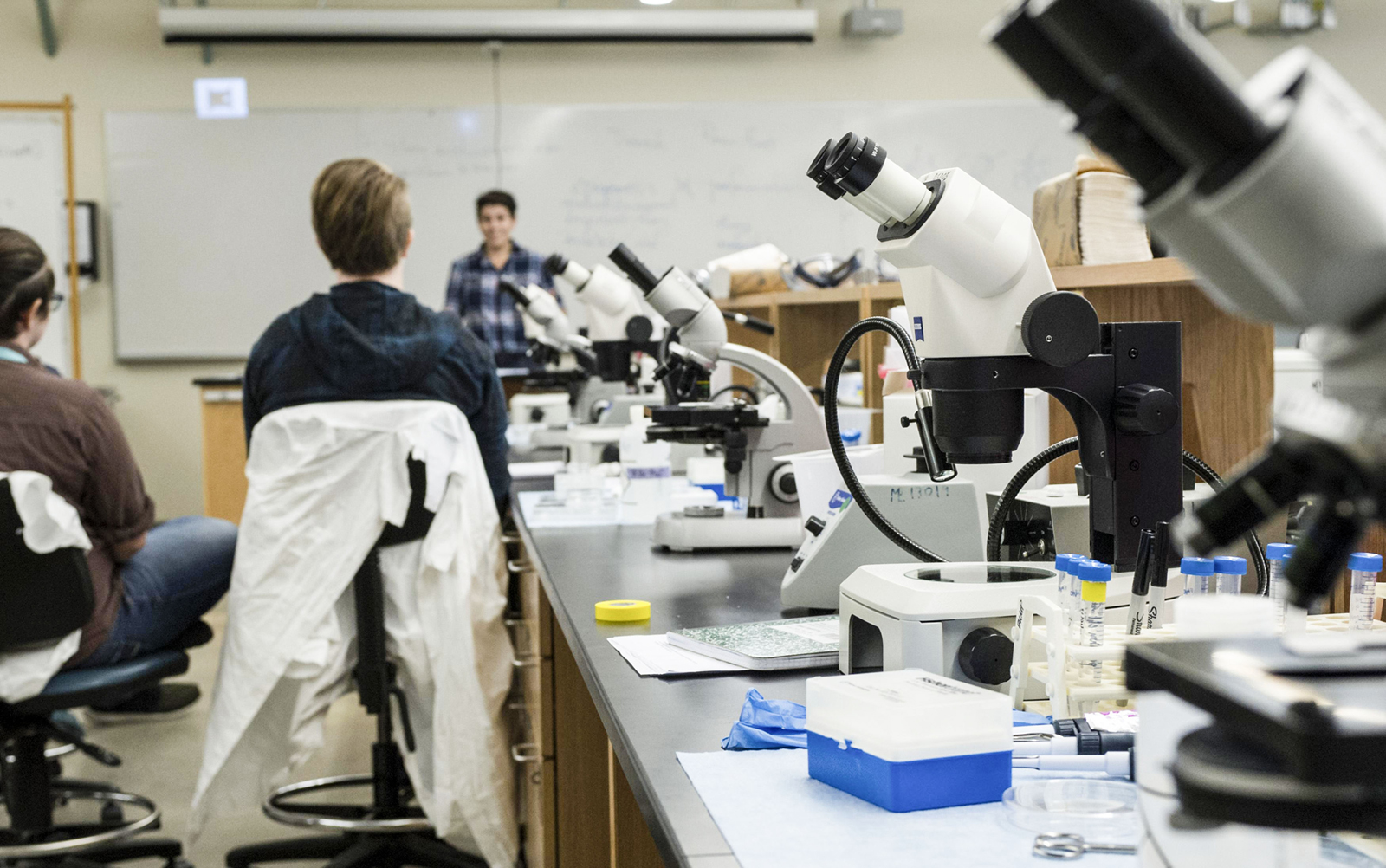
Educational Opportunities Marine Biological Laboratory
A variety of Biosafety Level 2 laboratories support biological and chemical research and development at Lincoln Laboratory. A researcher conducts an experiment in a wet biology laboratory. Lincoln Laboratory has developed extensive biology and chemistry capabilities over the past 20 years. Our multidisciplinary staff have significant experience.

Biology laboratory Stock Image C004/0186 Science Photo Library
The meaning of BIOLAB is a biological laboratory. a biological laboratory… See the full definition. Games & Quizzes; Games & Quizzes; Word of the Day; Grammar; Wordplay; Word Finder; Thesaurus; Join MWU. bio· lab ˈbī-(ˌ)ō-ˌlab : a biological laboratory. Dictionary Entries Near biolab. biol. biolab. biologic. See More Nearby Entries.
Laboratory Science Technology Biological Science Emphasis Associate Degree Northeast
Quickly access resources and logistical information for students, instructors and researchers. The Marine Biological Laboratory (MBL) is an international center for research and education in biological and environmental science located in Woods Hole, MA.
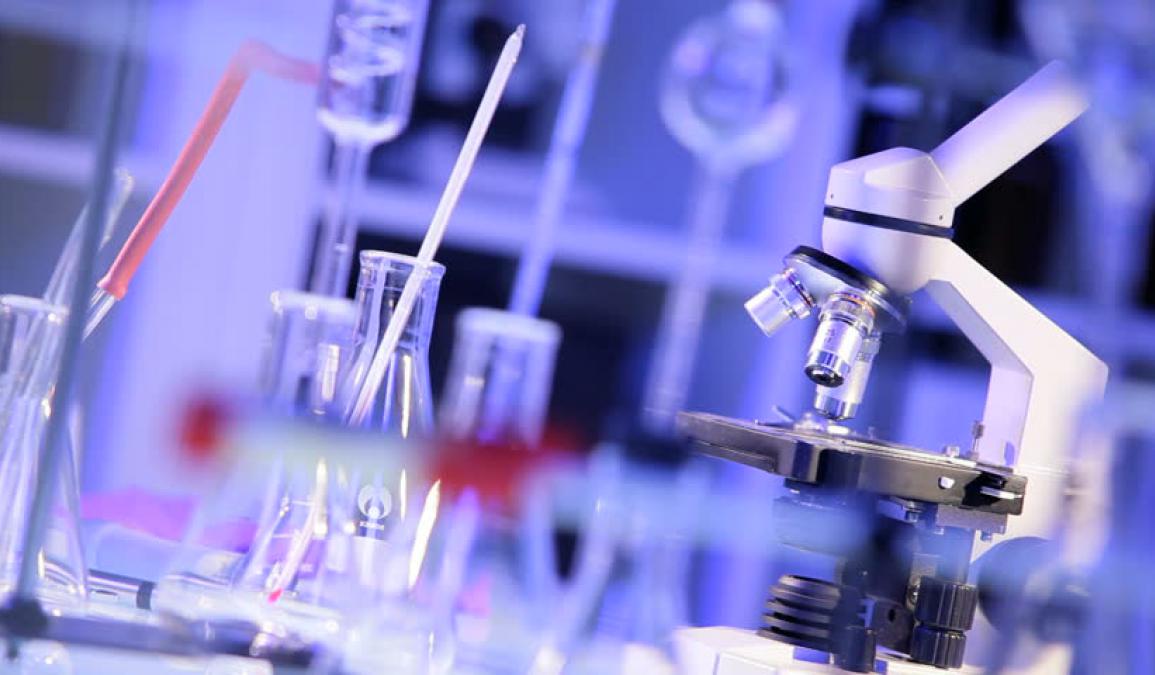
Laboratory for Medical Biology Analysis Aboujaoudé Hospital
Responsible and safe handling of microorganisms (potentially pathogenic) is necessary to ensure the health of laboratory personnel, the community, and the environment. This chapter reviews practices and protocols that have been established at the international and national level to ensure biosafety in institutions involved in biotechnology.
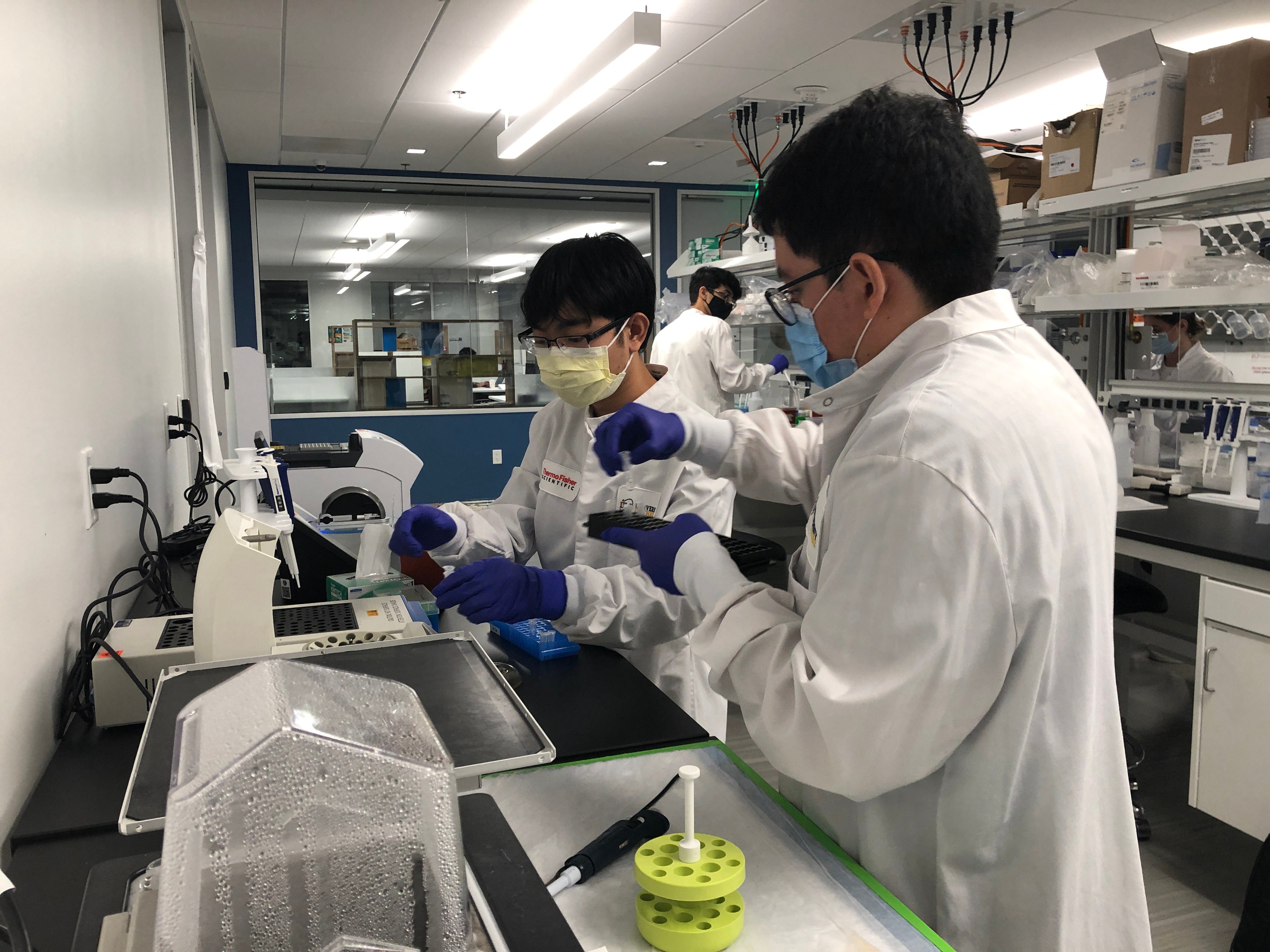
Molecular Biology Laboratory Techniques ULP Events
The Marine Biological Laboratory (MBL) is dedicated to scientific discovery - exploring fundamental biology, understanding biodiversity and the environment, and informing the human condition through research and education.Founded in Woods Hole, Massachusetts in 1888, the MBL is a private, nonprofit institution and an affiliate of the University of Chicago.

MDI Biological Laboratory WBRC Inc.
Biological safety levels — often abbreviated to biosafety levels or BSL — are a series of protections specific to autoclave-related activities that take place in biological labs. Biosafety levels are individual safeguards designed to protect laboratory personnel, as well as the surrounding environment and community.
.jpg#keepProtocol)
Molecular Biology Laboratory Techniques ULP 2020 Events
Follow these steps to pursue this career: 1. Earn a degree. Biological technicians typically need a four-year bachelor's degree in biology or a related field. Some biological tech positions might be available for individuals without degrees or with an associate's degree and laboratory work experience.
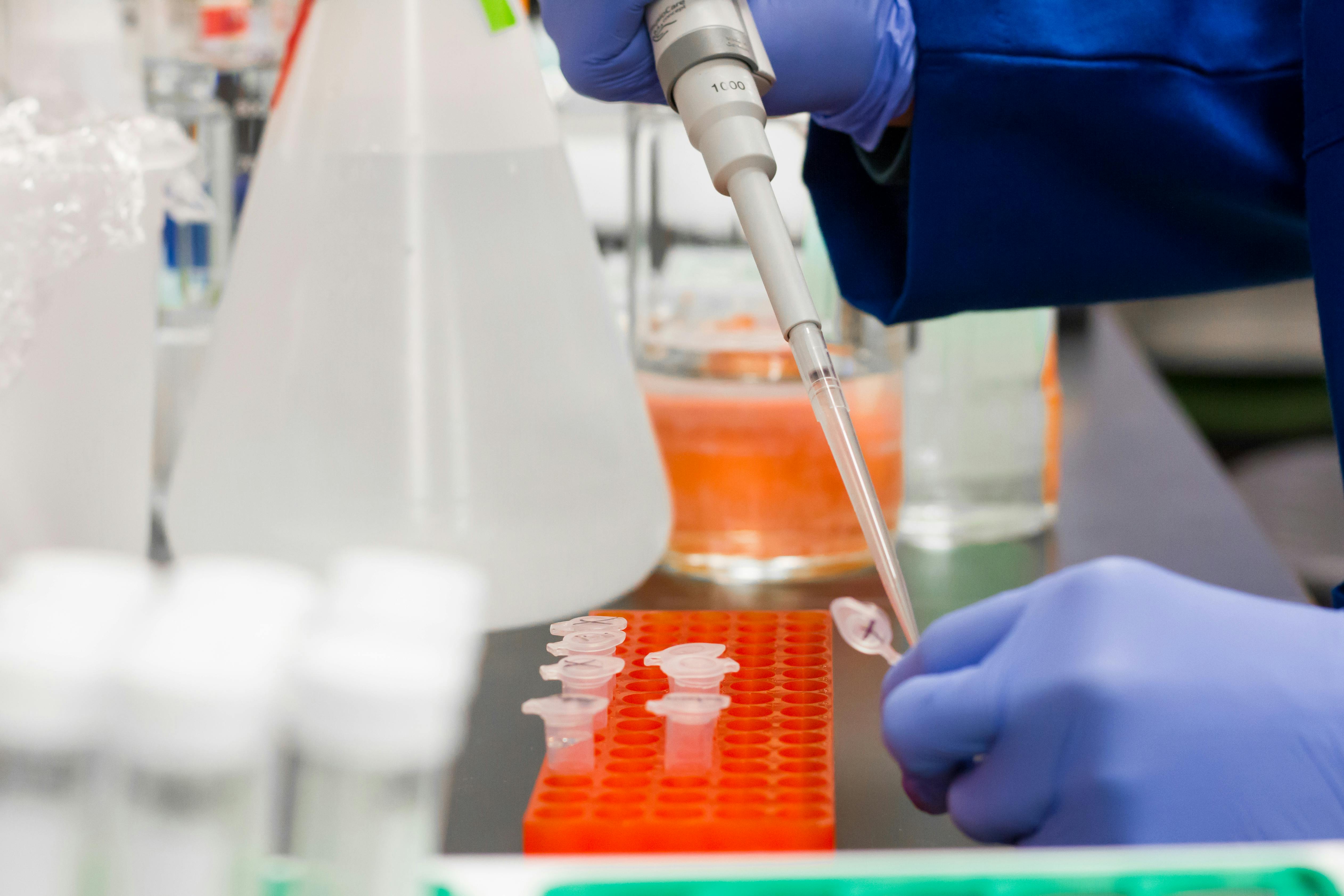
Free stock photo of biology, lab, laboratory
Founded in 1890, Cold Spring Harbor Laboratory has shaped contemporary biomedical research and education with programs in cancer, neuroscience, plant biology and quantitative biology. Home to eight Nobel Prize winners, the private, not-for-profit Laboratory employs 1,000 people including 600 scientists, students and technicians.

Biochemistry and Molecular Biology Lab Academics High Point University
Bioanalysis. Bioanalysis is a sub-discipline of analytical chemistry covering the quantitative measurement of xenobiotics (drugs and their metabolites, and biological molecules in unnatural locations or concentrations) and biotics ( macromolecules, proteins, DNA, large molecule drugs, metabolites) in biological systems .
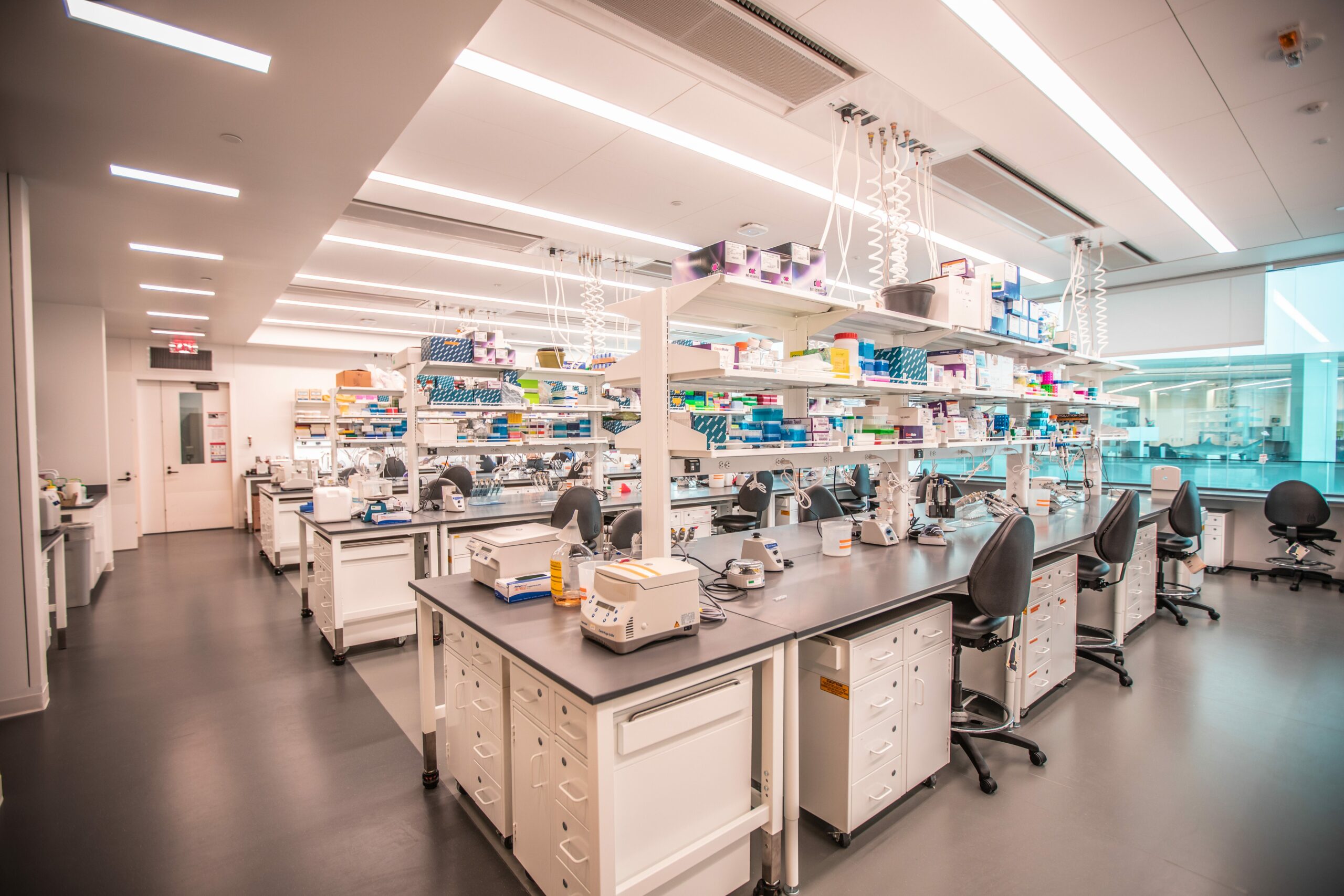
University of Michigan Biological Science Building Barton Malow
1. Microscope. A microscope is one of the most common apparatus used in biology laboratories. It is mainly used to magnify small objects. To observe a specimen at the cellular level, a sample is taken and studied at the micro-level with the help of a microscope.

Marine Biology Research Laboratory Boston University — Isgenuity, LLC
Microbiology laboratories are special, often unique, work environments that may pose special infectious disease risks to persons in or near them. Personnel have contracted infections in the laboratory throughout the history of microbiology. Published reports around the turn of the century described laboratory-associated cases of typhoid, cholera, glanders, brucellosis, and tetanus(123 ).

Biological Sciences Laboratories YouTube
1. Fill a beaker about halfway with water and bring it to a gentle boil on the hot plate. 2. Label tubes. Use a wax pencil to label the tubes with the test and sample ID; label at the volume markings listed below. 3. Add 2 mL. sample to the tube (2 cm). 4. Add 2 mL. (2 cm.) Benedict's solution and swirl to mix.

Modern biological laboratory. The interior of the room is equipped for scientific research Stock
CDC's Division of Laboratory Systems knows that incidents involving biological, chemical, physical, and radiological hazards can have a significant impact on the safety and health of those who work in laboratory settings. Risk management is a continuous process to identify, assess (evaluate), control, and monitor risks.

What is a Microbiology Lab? (with pictures)
biology, study of living things and their vital processes. The field deals with all the physicochemical aspects of life. The modern tendency toward cross-disciplinary research and the unification of scientific knowledge and investigation from different fields has resulted in significant overlap of the field of biology with other scientific.
- Wat Rong Khun White Temple
- When Is Billie Eilish Coming To Australia Next
- Fwaw 2023 Who Is Still Together
- 225 Kpa To Psi Tyre Pressure
- How Many Mils In A Schooner Of Beer
- When Is Wwe Coming To Australia
- Nz Warriors Indigenous Jersey 2023
- Harrisdale Senior High School Catchment
- Synopsis Of The Four Agreements
- Best Private Schools Sunshine Coast
